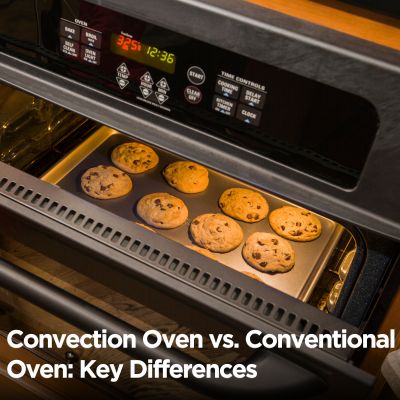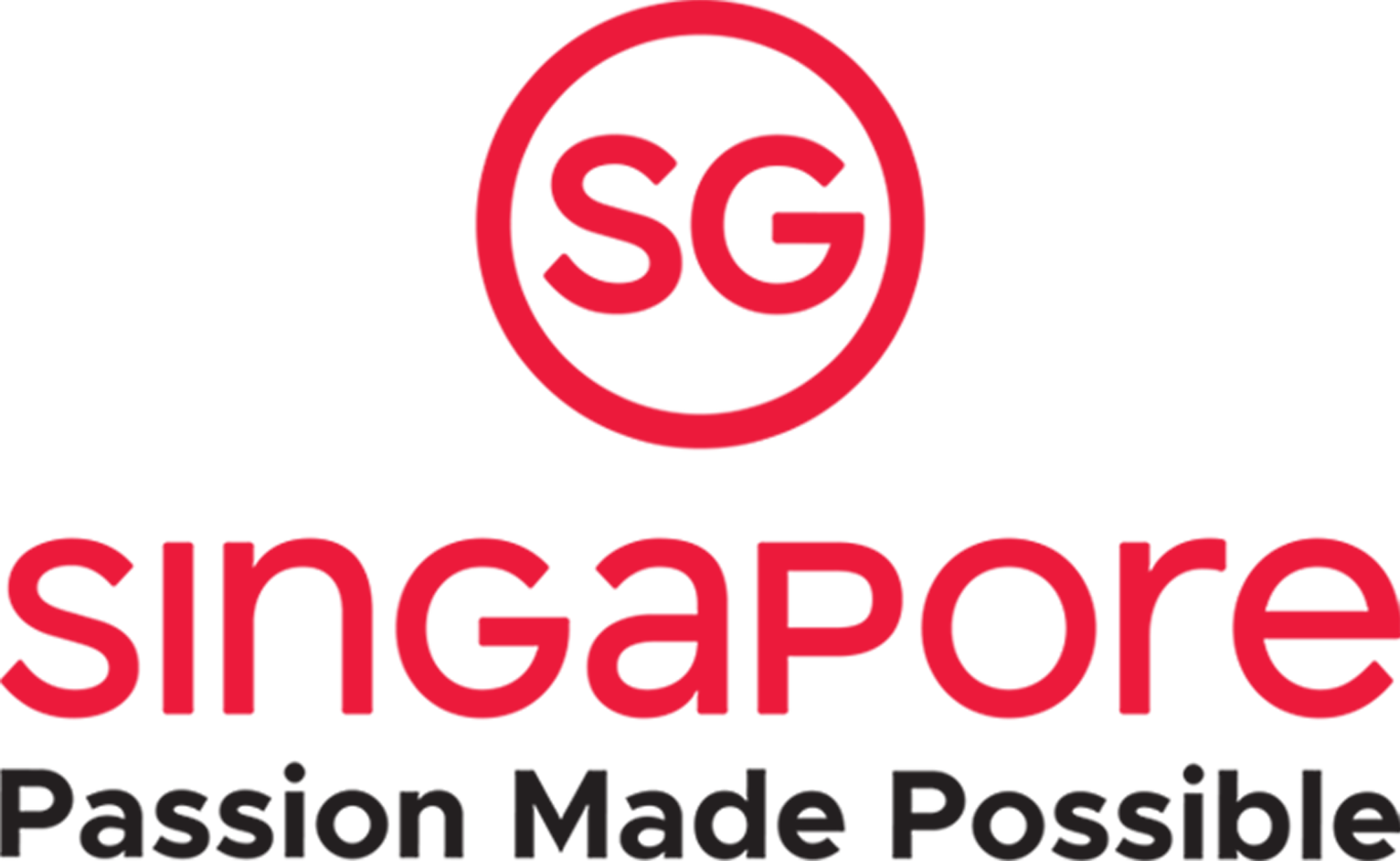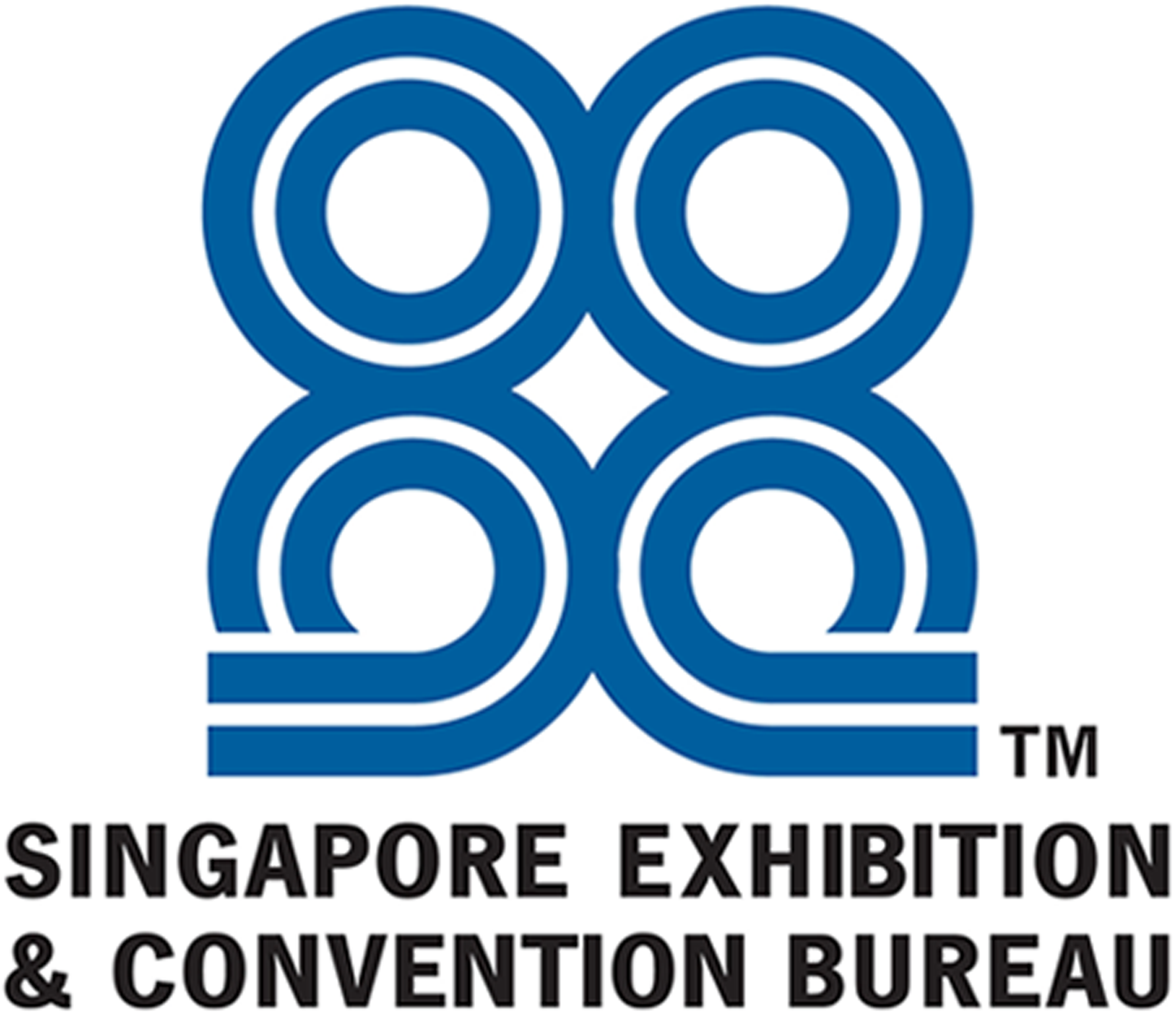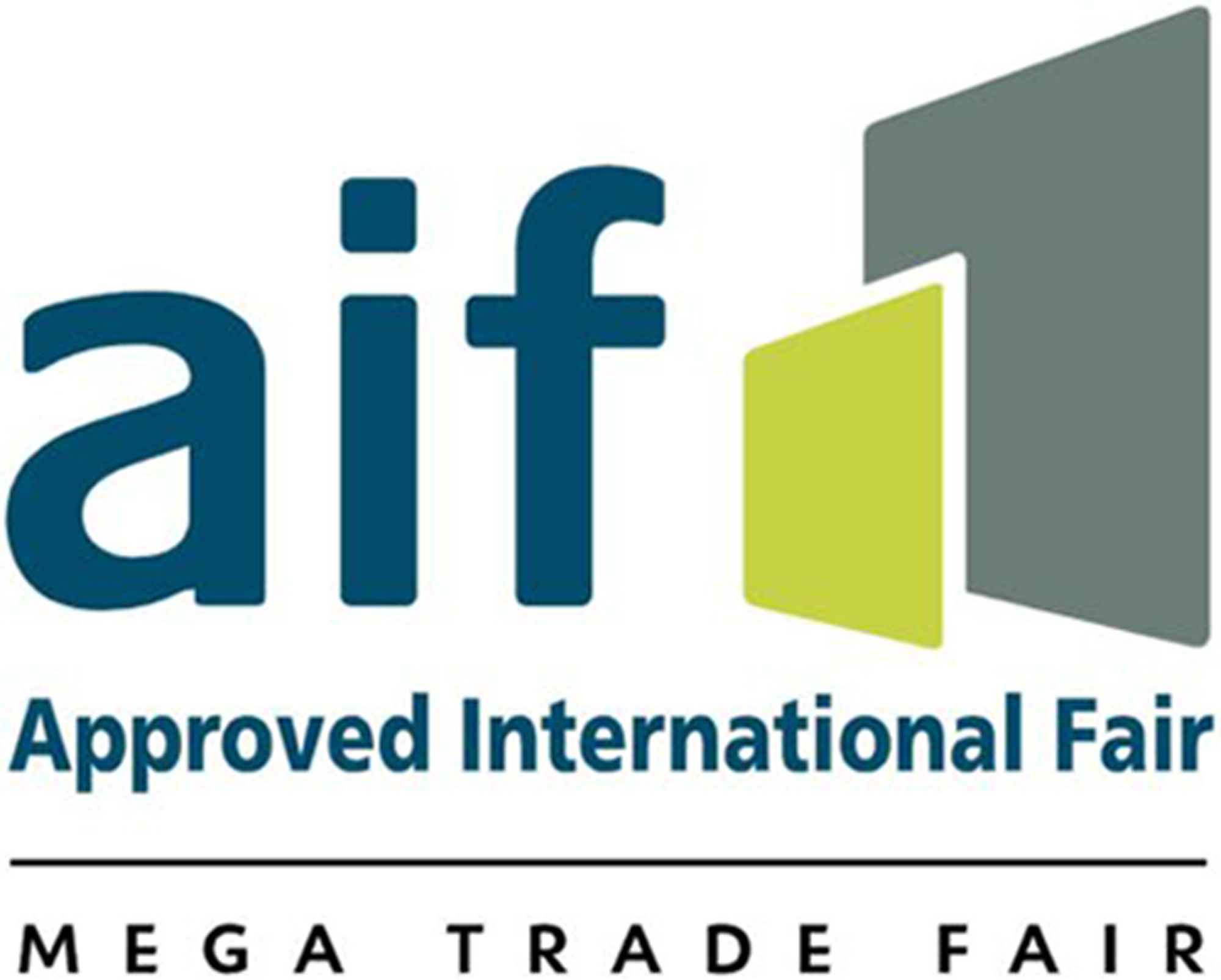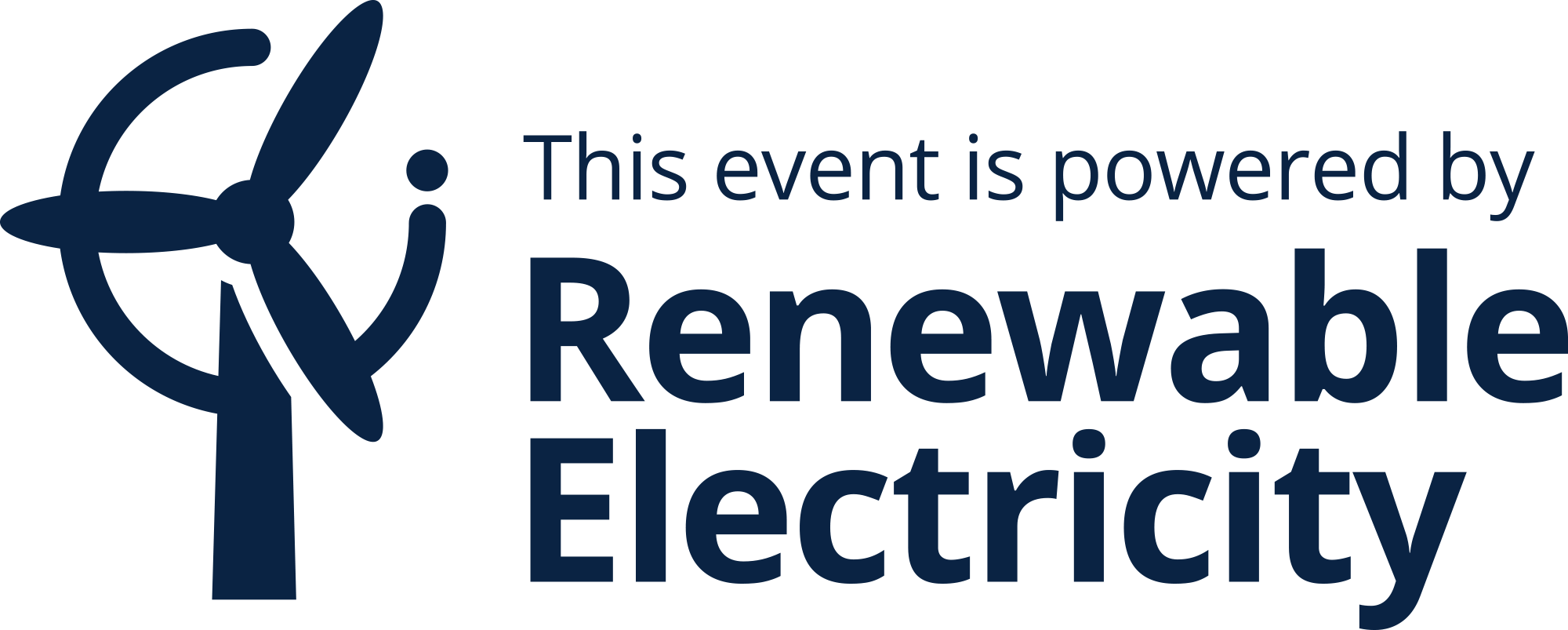How can you accurately gauge your hotel’s financial health? While revenue numbers like RevPAR are essential, they only tell part of the story.
Hoteliers must examine income and expenses to understand a hotel’s profitability truly. This is where GOPPAR comes in.
GOPPAR stands for Gross Operating Profit Per Available Room and is one of the most effective ways to measure how efficiently a hotel converts revenue into profit after covering operational expenses.
In a highly competitive industry like hospitality, tracking GOPPAR helps hotels stay financially healthy by giving a clearer view of their performance.
By the end of this article, you will have a comprehensive understanding of GOPPAR, why it matters, how to calculate it, and how to improve it.
We’ll also explore real-world examples and best practices that can help maximize this important financial metric.
What is GOPPAR?
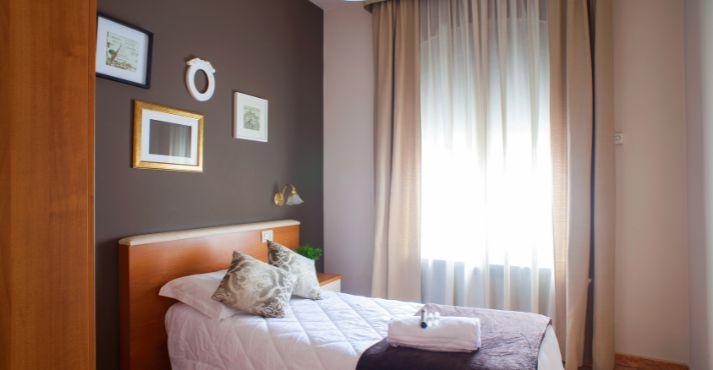
GOPPAR is a metric used to measure a hotel’s profitability by calculating the gross operating profit generated per available room. Unlike RevPAR (Revenue Per Available Room), which only considers revenue, GOPPAR factors in operational expenses like payroll, utilities, and maintenance.
This makes it a more comprehensive measure of a hotel’s financial health because it reflects how much money the hotel retains as profit after covering its costs.
Here’s a simple way to think about it: GOPPAR helps you understand how well a hotel manages its operations to generate profit. After paying for necessary expenses, it shows how much profit remains from each room.
GOPPAR Formula:
GOPPAR = Gross Operating Profit ÷ Total Available Rooms
For example, if a hotel generates $200,000 in gross operating profit and has 100 rooms, its GOPPAR is $2,000. This means the hotel makes $2,000 in profit for each available room after expenses.
How to Calculate GOPPAR?
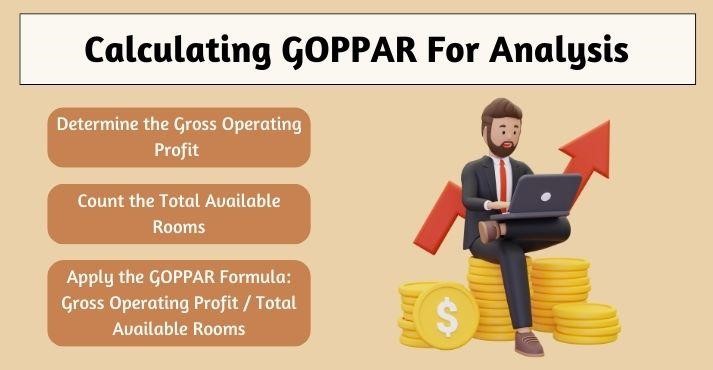
Calculating GOPPAR is straightforward. However, accurate data on gross operating profit and the total number of available rooms is required.
Step-by-Step Breakdown:
- Determine the Gross Operating Profit (GOP): This includes all revenue generated by the hotel, such as room sales, food and beverage (F&B) income, and other services, minus all operating expenses like labor, utilities, and marketing.
- Count the Total Available Rooms: This refers to the total number of hotel rooms occupied over the measured period.
- Apply the GOPPAR Formula: Once you have both figures, use the following formula:
- GOPPAR = Gross Operating Profit ÷ Total Available Rooms
Example: Let’s say a hotel has a gross operating profit of $500,000 and 250 available rooms.
The GOPPAR calculation would be:
GOPPAR = $500,000 ÷ 250 = $2,000
In this case, the hotel generates $2,000 in profit per room after covering all operating expenses, which improves the hotel’s operating profit.
Key Factors Influencing GOPPAR
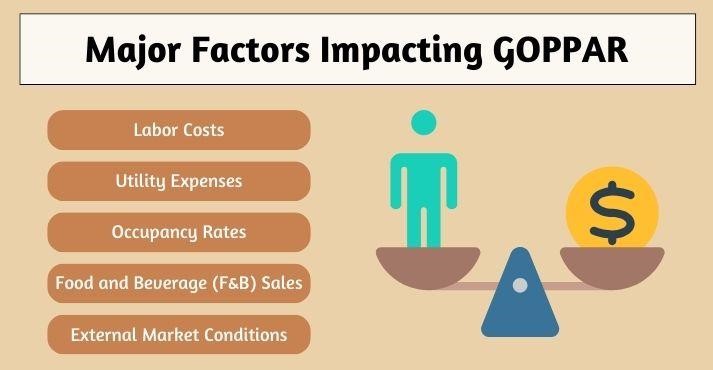
Many factors can affect a hotel’s GOPPAR. Hotels must consider various internal and external elements influencing operating profit and the number of available rooms to get the most accurate and meaningful data from this metric.
1. Labor Costs
Labor is often one of the most significant expenses for hotels. High staffing costs can significantly reduce GOPPAR, mainly if labor could be more efficient. Effective scheduling, cross-training staff, and using automation where possible can help control labor costs without sacrificing service quality.
2. Utility Expenses
Energy and utility costs can also have a significant impact on GOPPAR. Hotels that implement energy-saving initiatives—such as using energy-efficient lighting, installing smart thermostats, or upgrading HVAC systems—can lower these expenses, directly improving their profitability.
In Southeast Asia, for instance, some hotels have begun using solar energy to offset energy costs. The Parkroyal Collection Marina Bay in Singapore focuses heavily on sustainability and energy efficiency, contributing positively to its GOPPAR by lowering long-term utility expenses.
3. Occupancy Rates
The more rooms a hotel fills, the more revenue it generates. However, GOPPAR considers revenue and the costs associated with running the hotel.
Therefore, hotels must balance occupancy rates with room pricing and operational efficiency to maximize their GOPPAR. This balance is a critical part of hospitality management metrics used by hotels to evaluate success.
4. Food and Beverage (F&B) Sales
A strong F&B program can significantly boost a hotel’s GOPPAR. However, inefficient or wasteful F&B operations can affect the hotel’s profitability.
Monitoring food costs, optimizing menus, and managing labor in the kitchen and dining areas are critical to positively impacting GOPPAR.
Many luxury hotels in Singapore and Malaysia, such as Raffles Hotel Singapore and The Ritz-Carlton, Kuala Lumpur, are well-known for their outstanding F&B services, contributing significantly to their overall profitability and strong GOPPAR.
These hotels optimize their F&B offerings to cater to guests and external visitors, generating substantial revenue, which is key to maximizing hotel revenue.
5. External Market Conditions
External factors like economic downturns, tourism trends, or global events like the COVID-19 pandemic can affect GOPPAR.
For instance, during times of lower demand, hotels may struggle to maintain high occupancy rates or need to lower room rates, which can negatively impact GOPPAR. Regular GOPPAR benchmarking can help hotels stay competitive during challenging times.
Significance of GOPPAR in Hotel Management
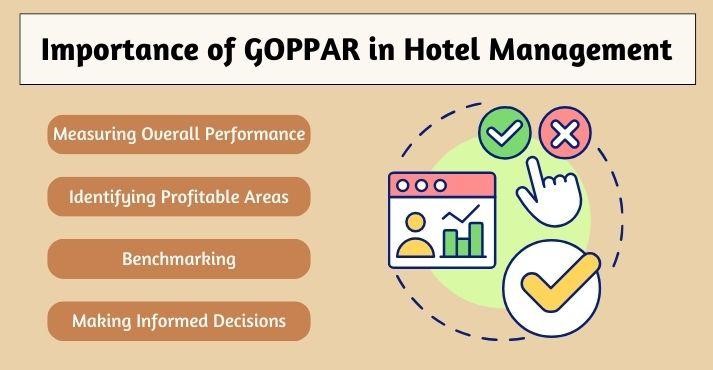
GOPPAR is not just another number on a financial report—it’s a powerful tool that offers several important benefits to hotel management. Interpretation of this metric can help hoteliers make more informed decisions that improve both short-term performance and long-term profitability.
1. Measuring Overall Performance
GOPPAR provides a holistic view of a hotel’s financial health. Unlike RevPAR or ADR (Average Daily Rate), which focuses solely on revenue generation, GOPPAR gives insight into how well a hotel manages its expenses about its revenue.
This makes it a more comprehensive performance indicator because it shows whether the hotel generates profit, not just revenue.
2. Identifying Profitable Areas
One of the most valuable aspects of GOPPAR is its ability to highlight which areas of the hotel are the most profitable. When analyzing GOPPAR, management can identify which departments, services, or amenities contribute the most to the bottom line.
For instance, a hotel may discover that its spa and wellness services generate a significant profit relative to its operating costs. This insight could prompt the hotel to invest more in marketing these services or expand its offerings.
On the other hand, a poorly performing department might be re-evaluated to improve profitability and maximize hotel revenue.
In Singapore, The Fullerton Hotel is a great example of a property that has capitalized on high-margin amenities such as its heritage tours and wellness programs. These offerings have lower operational costs compared to room revenue, leading to improved GOPPAR.
3. Benchmarking
GOPPAR benchmarking is an essential practice for any business, and hotels are no exception. GOPPAR allows hotels to compare their financial performance with industry benchmarks or competitors in the same market.
This can help a hotel identify whether it’s outperforming or underperforming relative to similar properties.
For example, if a hotel’s GOPPAR is lower than industry averages, this could indicate inefficiencies in operations, higher-than-average expenses, or pricing issues.
When regularly benchmarking GOPPAR, hotels can adjust to stay competitive and improve their financial outcomes, focusing on overall hotel profitability analysis.
4. Making Informed Decisions
A deep understanding of GOPPAR enables hoteliers to make smarter decisions. Whether adjusting room rates, investing in technology, or reallocating resources, GOPPAR can serve as a guide for strategic planning.
An example is that if a hotel sees that its GOPPAR is declining, management can investigate whether rising costs or inefficiencies are to blame. Conversely, a rising GOPPAR could indicate that recent cost-saving measures or operational improvements are paying off.
Best Practices to Improve GOPPAR
Improving GOPPAR is about more than just cutting costs—it requires a balanced approach that considers revenue generation and operational efficiency. Below are some key best practices hotels can follow to improve their GOPPAR and boost profitability.
1. Revenue Management
Effective revenue management is one of the most critical factors in improving GOPPAR. This involves setting the right room rates based on demand, effectively managing distribution channels, and offering the right mix of promotions and packages to attract guests.
For example, dynamic pricing strategies—adjusting room rates in real-time based on demand—can help maximize revenue without dramatically increasing operational costs.
In addition, managing distribution costs by focusing on direct bookings or reducing reliance on third-party booking platforms can improve GOPPAR.
2. Cost Control
Cost control is a significant part of improving GOPPAR. Hotels that carefully manage their expenses, from labor costs to energy consumption, will positively impact their bottom line. Cost-saving initiatives can include:
- Energy Efficiency: To lower utility expenses, implement energy-saving technologies such as LED lighting or smart thermostats.
- Staff Optimization: Using labor management systems to optimize staff scheduling and reduce unnecessary overtime or overstaffing.
- Supplier Negotiations: Regularly reviewing supplier contracts and finding more cost-effective solutions for goods like F&B supplies or cleaning products.
Even small reductions in operating expenses can have a large impact on GOPPAR.
3. Guest Satisfaction
While controlling costs is important, maintaining high levels of guest satisfaction is essential for driving repeat business, attracting new guests, and increasing revenue.
Satisfied guests are more likely to return, recommend the hotel to others, and leave positive reviews online, contributing to better GOPPAR.
GOPPAR vs. Other Hospitality Metrics
Understanding how GOPPAR compares to other key metrics in the hospitality industry, such as hotel RevPAR (Revenue Per Available Room) and ADR (Average Daily Rate), is essential for a comprehensive view of profitability.
In a comparative analysis:
GOPPAR vs. RevPAR
GOPPAR and RevPAR are vital metrics in assessing a hotel’s financial performance.
While RevPAR focuses solely on room revenue, GOPPAR provides a more comprehensive view by considering all revenue streams and operational expenses. This distinction positions GOPPAR as a more holistic measure of a hotel’s profitability.
When comparing these metrics, the emphasis is on comprehensive profitability analysis.
RevPAR, while informative, may need to capture the complete picture of a hotel’s financial health. GOPPAR, by encompassing all revenue and operational expenses, offers a nuanced perspective that goes beyond room-centric metrics.
ADR and GOPPAR Comparison
ADR and GOPPAR serve distinct purposes in evaluating a hotel’s financial performance. ADR focuses on the average rate achieved per room, providing insights into pricing strategies.
GOPPAR, on the other hand, goes beyond room rates, considering operational efficiency and overall profitability.
In this comparison, the importance of using comprehensive profit metrics is highlighted. While ADR contributes to revenue insights, GOPPAR ensures a more thorough understanding by factoring in revenue and operational expenses.
This broader perspective aids hoteliers in making informed decisions for sustained financial success.
Conclusion
So what is GOPPAR? It is a crucial metric for hoteliers because it provides a comprehensive view of their overall profitability by accounting for revenue and operational expenses.
Unlike more straightforward metrics like RevPAR, GOPPAR reveals how well a hotel converts revenue into actual profit, making it a more reliable indicator of financial health.
When hotels regularly monitor and improve their GOPPAR, they can make more informed business decisions that directly impact their bottom line.
Implementing strategies such as effective cost control, optimized revenue management, and enhancing guest satisfaction are key to increasing GOPPAR.
Focusing on these areas can ultimately lead to improved GOPPAR results, stronger financial performance, and long-term success in a competitive hospitality industry.




